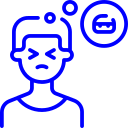Eating disorders can be very complex conditions and different experienced, qualified medical experts may use different treatments, but the objectives are typically the same. Therapy for eating disorders help patients learn to comprehend their circumstance as treatment progresses and they begin to regain an understanding and awareness of the seriousness of their illness.
Psychological symptoms are important to treat because nutritional variables amplify and exacerbate such symptoms. The goal of eating disorder therapy is to provide the tools and techniques needed to manage the condition on a daily basis. Therapy aims to achieve recovery, which is when you experience fewer or no symptoms. Treatment is also important to prevent relapsing so ongoing sessions may be needed as a preventative measure.








